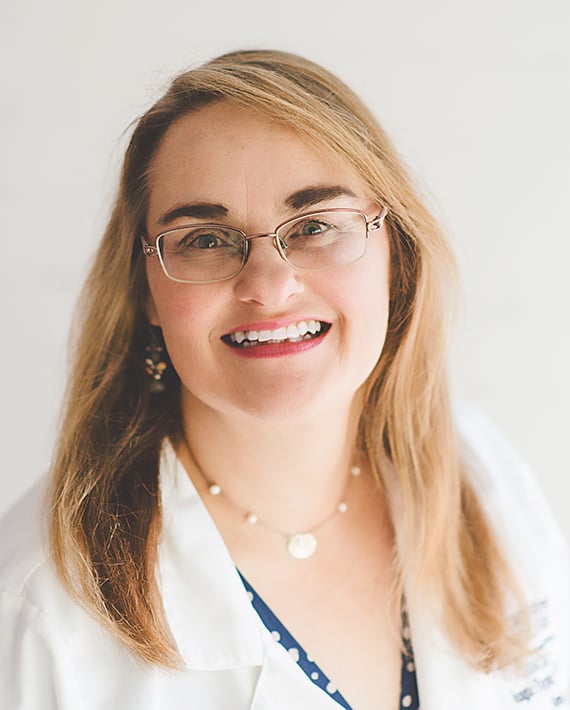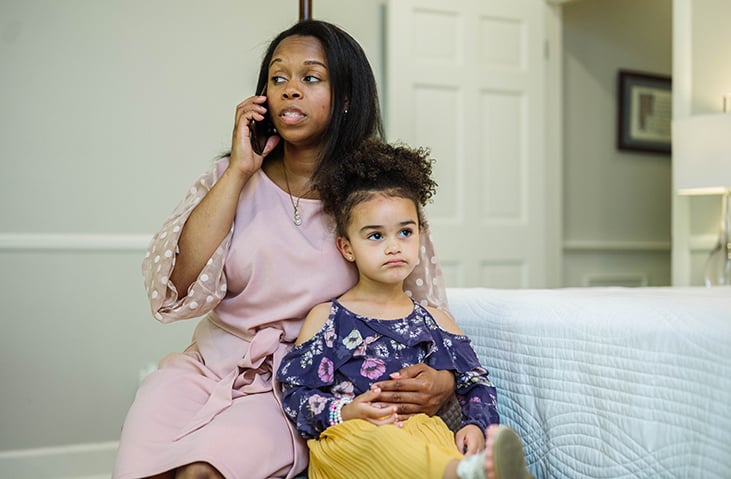



Summary
A board-certified oncology genetic counselor debunks 5 common myths about cancer risk, family history and testing—because clarity can lead to lifesaving care.
As a board-certified oncology genetic counselor, I often hear the same concerns—and the same myths—about cancer risk.
Family history matters, but it’s not the whole story. Here’s what the science really says.
Myth: There’s cancer in my family. I don’t need genetic testing to know I have “the cancer gene.”
Truth: While having strong family history of cancer is a good reason to consider oncology genetic counseling, family history doesn’t automatically guarantee an inherited cancer risk.
Surprisingly, only about 10% of people who have a cancer diagnosis have an unknown inherited cancer risk associated with that cancer. About 65% of all cancer occurs sporadically in people who wouldn’t be considered at high risk.
We can see patterns in families. Sometimes those patterns are environmental. Farming families, for example, may be exposed to the same chemicals. There may be a culture of smoking and tobacco use that increases cancer risk.
If there is a strong family history of cancer, you may benefit from oncology genetic counseling, because the results can impact your screening recommendations.
Oncology genetic counseling for families may be recommended if:
- A first degree relative (parent, sibling, child) is diagnosed with inherited cancer risk
- Multiple family members diagnosed with cancer, especially before age 50
Myth: Genetic testing is only important if you have breast cancer in your family.
Truth: Breast cancer gets all the press, but there are a number of other types of cancer that can have inherited risk including ovarian, pancreatic, colorectal, endometrial, melanoma and kidney.
For example, in this region, the inherited risk for colon cancer is actually more prevalent than the inherited risk for breast cancer.
We used to look for specific genes when we recommended genetic testing, but now we typically use inclusive panels that look for multiple genes associated with cancer risk.
Myth: I had the testing and don’t have any cancer genes, so I don’t need to worry about cancer one bit.
Truth: No known inherited risk does not actually mean no known cancer risk. Genetic testing helps identify people who need more robust screening because they are at higher risk.
For everyone – even those who have tested negative for inherited cancer risk – it is still very important to follow our screening guidelines to help protect you as much as possible and to engage in healthy lifestyle behaviors.
Most cancers – 65% – are found in people who aren’t considered high risk. Screening is recommended to find cancer before you experience symptoms. Your primary care provider can help you identify cancer screenings you would benefit from based on your personal and family medical history and risk factors.
Routine cancer screenings include:
- Breast cancer: Annual screening starting at age 40
- Colorectal cancer: Annual screening starting at age 45
- Cervical cancer: Starting at age 21
- Prostate cancer: Starting between 45 and 50 after consulting with your provider
- Lung cancer: Starting at age 50 for current smokers and those who have smoked in past 15 years
Myth: There’s only cancer on my dad’s side, so I don’t have to worry about my genetics.
Truth: When it comes to inherited risk for breast cancer or any other cancer, both sides of the family are very important.
Cancer tendencies can be passed from either parent. Breast cancer risk can come to daughters from dad's side of the family. Prostate cancer risk can come to sons from mom’s side of the family.
Myth: Genetic testing and counseling is way too expensive.
Truth: The cost of genetic testing has dropped dramatically. Insurance coverage has improved for those who meet the guidelines for oncology-related genetic testing.
Most of my patients pay $250 or less, and many pay zero out of pocket. We will work with you to help make sure that there's an option available that suits your budget.


Angela Taylor, FNP
Angela Taylor, FNP, is a nurse practitioner and certified genetic counselor at North Mississippi Medical Center Hematology Oncology in Tupelo. She is certified in genetic counseling through the American Nurses Credentialling Center and has more than a decade of experience in oncology. She works with cancer patients and their families to identify genetically linked cancers. The results can guide cancer treatment, screening and prevention recommendations.

Subscribe to Our Newsletter
Like this content and want to get more? Sign up for True North, the health and wellness newsletter from North Mississippi Health Services!

Subscribe to Our Newsletter
Like this content and want to get more? Sign up for True North, the health and wellness newsletter from North Mississippi Health Services!

Nurse Link®
Not sure if you need Urgent Care or the ER? Call 1-800-882-6274 anytime to speak directly to a registered nurse and get immediate answers. Using computerized medical protocols, nurses direct callers to the most appropriate treatment. Our nurses are available 24 hours per day, seven days per week.